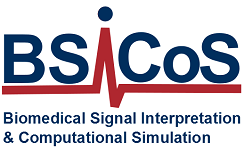-
Projects
Digital transformation of clinical practice by using patient-specific cardiac digital twins for risk prediction and therapy optimization (DIGICARDIO) – TED2021-130459B-I00
Start date
2022
End date
2024
Coordinator
Esther Pueyo & Ana Mincholé
Funding agency
Agencia Estatal de Investigación
In this project, we propose the construction of patient-specific digital twins of the human heart by statistical and mechanistic in silico modeling, fed with extensive clinical data collected and processed digitally. In particular, we will deliver personalized digital twins based on standard and high spatial resolution electrocardiographic signals, magnetic resonance images (MRI), echocardiography, blood and genetic test analysis and clinical history data. Computational simulations using the digital twins will enable dissecting the contribution of patients’ anatomical and functional ventricular characteristics to ECG manifestations, thus facilitating the definition of more precise non-invasive markers for risk prediction and therapy planning.
Our digital twins will be applied in three scenarios where they are expected to permeate in cardiology practice to digitally transform it. The main aims are: 1) to optimize novel cardiac resynchronization therapy (CRT) approaches pacing the cardiac conduction system in patients with heart failure and conduction defects; 2) to improve the selection of post-myocardial infarction (MI) patients for cardioverter defibrillator implantation; and 3) to accurately stratify patients with hypertrophic and arrhythmogenic cardiomyopathy according to their sudden cardiac death (SCD) risk.
